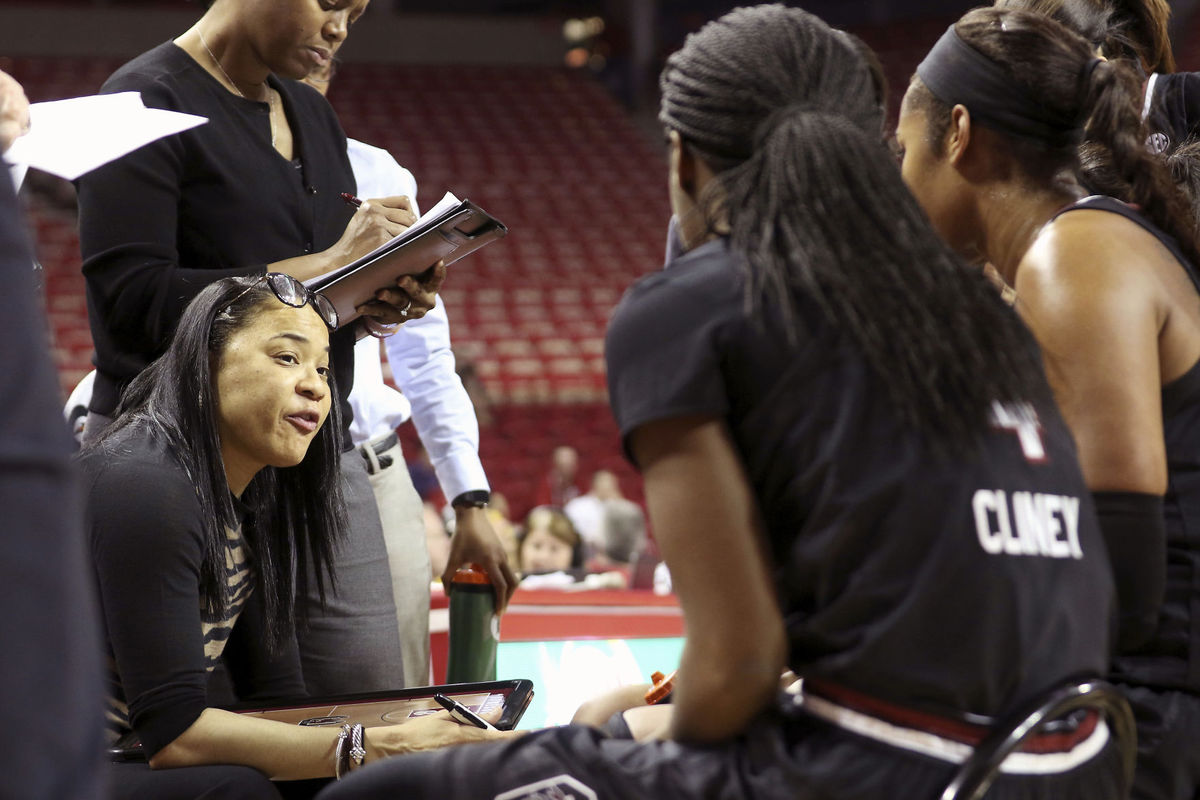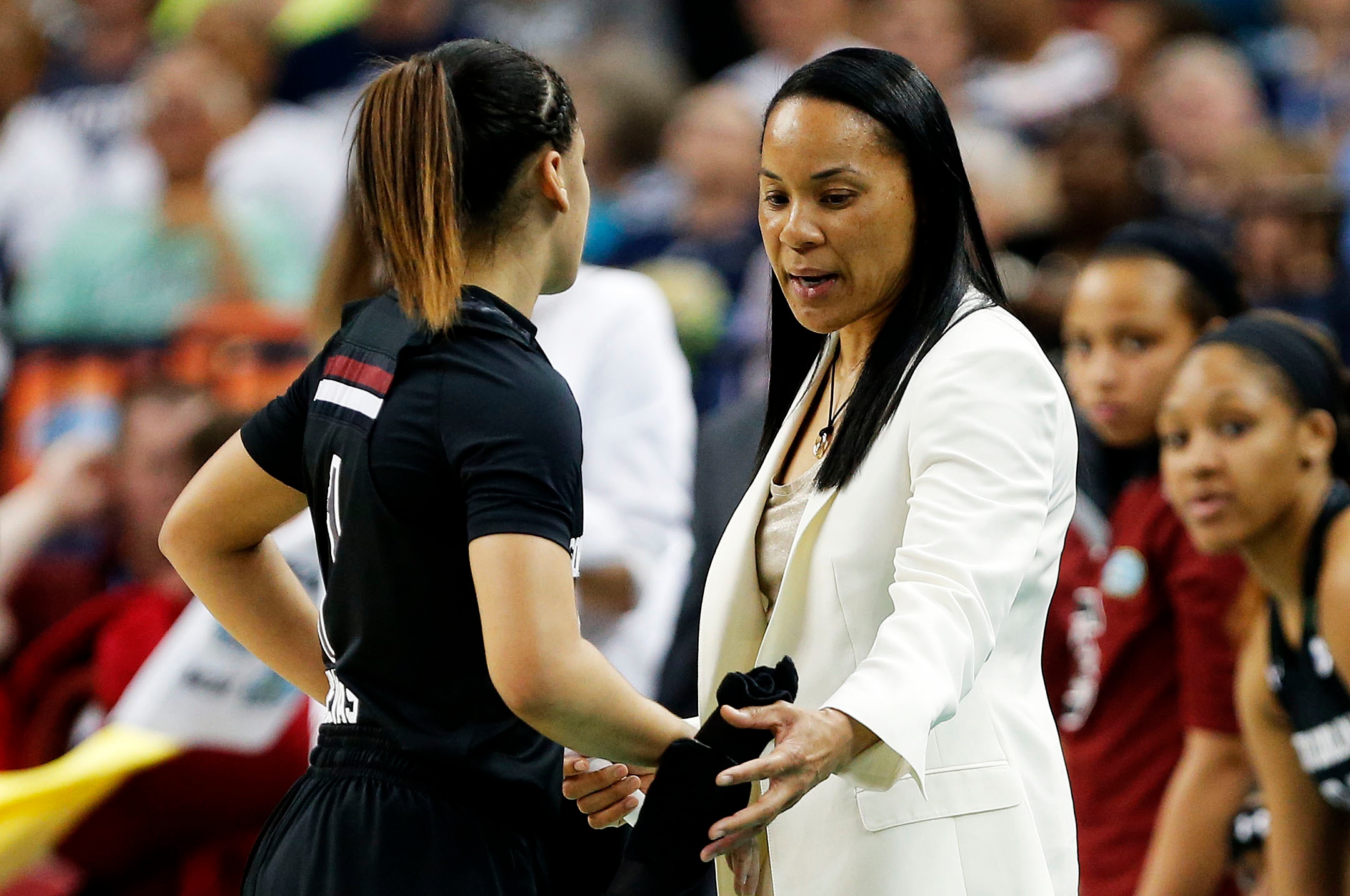Here’s the problem with rules: if you have a rule, there has to be a consequence for breaking it.
And, of course, there has to be team rules. As much as chaos can be fun, it’s never going to be helpful to your players and never going to be part of your team culture. So, at the start of each season, you explain the rules and make sure your players know you are fully capable of enforcing them.
The punishment for breaking a rule, though, is usually left undefined, and the answer to a question about punishment is often, “I’ll decide.”
So, when it comes to punishment, should a coach apply blind justice? Should the punishment be the same for every player? Or should the coach take the past into consideration?
At the University of South Carolina, under head coach Dawn Staley, the women’s basketball program has undergone a significant transformation in the past eight years.
 For the first 34 years of the program, the Gamecocks were the model of mediocrity, compiling a 508-429 all-time record. But in 2008, Staley arrived as the Lady Gamecock’s new head coach with impeccable credentials. She drove the University of Virginia into the national elite in the late-80s and early-90s, still owns the NCAA record for career steals, made three Final Four appearances, won an NCAA title, and helped the USA to three Olympic Gold medals as a player and two more as an assistant coach. And she had a 172-80 coaching record at Temple University.
For the first 34 years of the program, the Gamecocks were the model of mediocrity, compiling a 508-429 all-time record. But in 2008, Staley arrived as the Lady Gamecock’s new head coach with impeccable credentials. She drove the University of Virginia into the national elite in the late-80s and early-90s, still owns the NCAA record for career steals, made three Final Four appearances, won an NCAA title, and helped the USA to three Olympic Gold medals as a player and two more as an assistant coach. And she had a 172-80 coaching record at Temple University.
After posting losing records in her first two seasons at South Carolina, Staley’s teams have gone 131-40 and made four straight NCAA appearances. Last season, the Gamecocks went 34-3 and this year advanced to the Final Four for the second time in three seasons.
Staley, who grew up in a public housing project in North Philly, believes discipline got her where she is today.
“I definitely got it from my mother,” she says. “She never let me get away with anything. She didn’t spare the rod, trust me. We are a disciplined team in everything we do. If it’s academic-related, we’re disciplined. If it is basketball, we’re disciplined. If it something like community service, we’re disciplined and diligent in seeing things through. We have to train the players into who we want them to be and how we want them to respond in certain situations, so we stay on them. It can be exhausting, but it benefits everyone. It benefits them because they will be able to have positive experiences the rest of their lives.”
Team rules, expectations and acceptable behavior is made clear from the start, and the players appreciate it.
 “It gets put to the test — a lot,” she says. “We are dealing with young people – 17 to 23 year olds. You want to make sure you are holding them accountable for their actions and leading them down the path to success. And sometimes that’s a hard job.”
“It gets put to the test — a lot,” she says. “We are dealing with young people – 17 to 23 year olds. You want to make sure you are holding them accountable for their actions and leading them down the path to success. And sometimes that’s a hard job.”
When the Lady Gamecocks have a situation that Staley has to address, past behavior is among the considerations.
“I don’t treat everybody the same,” Staley explains. “It’s on a case-by-case basis. I’ll give you an example. A’ja Wilson last year overslept for a shoot-around. So now we have a star player late for shoot-around. I know our players are thinking, ‘What is she going to do to A’ja Wilson?’ Well, A’ja Wilson has never been late for anything. She’s always early. That was very uncharacteristic of her.
“She came in the gym boo-hooing. I mean tears are dripping out of her eyes. The mere fact that she was late tore her to pieces because that’s not in her character. If it was somebody else who had struggled in making the team a priority, or had some character flaws, I would have treated it differently because they hadn’t banked anything. You have to have something in your bank account to draw on. And A’ja Wilson’s bank account was sufficient. Some other people’s bank accounts are insufficient. I deal with them in a different way. I did have a talk with her about it, though.”
So while there is something to be said for a level playing field, ignoring what an athlete has stored up in their bank can be detrimental. At the end of the day, the player-coach relationship is built on a foundation of trust. It’s important to remember and respect that trust, especially when situations involving discipline arise.